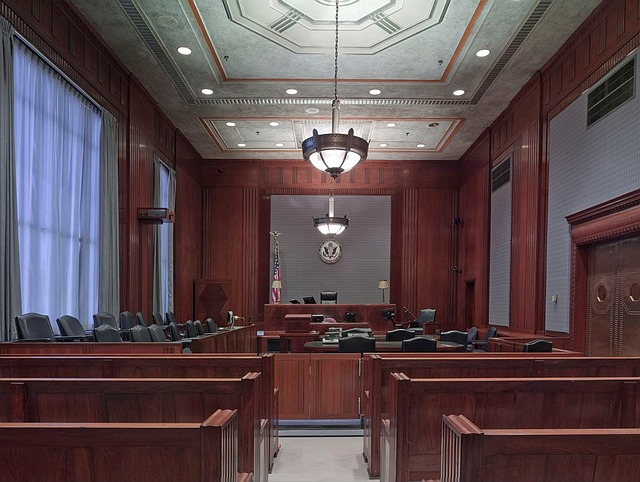As the world grapples with the escalating impacts of climate change, an extraordinary legal battleground is taking shape. Climate litigation has surged worldwide. Today there are individuals, organizations, and governments seeking accountability for climate change-related losses and demanding ambitious climate action. But what exactly is driving this trend, and what are the implications for the future? In this post, we’ll delve into the fascinating world of litigation, exploring the key players, landmark cases. We will also look at the challenges and opportunities that lie ahead.
Short Summary
- Climate litigation is growing globally, driven by advances in international environmental law and climate attribution science.
- Key players involved include governments, fossil fuel companies, NGOs and public interest groups.
- Climate litigation presents opportunities to spur more ambitious policies while investors respond through divestment from fossil fuels & green finance initiatives.
- The Growing Trend of Climate Litigation
- Key Players in Climate Lawsuits
- Notable Climate Litigation Cases Around the World
- The Future of Climate Litigation: Challenges and Opportunities
- Investor Response to Climate Litigation
- About ESG: The Report
- Summary
- Frequently Asked Questions
The Growing Trend of Climate Litigation
Climate litigation has become an increasingly prevalent tool for challenging governmental inaction and corporate malfeasance on climate change. According to the United Nations Environment Programme (UNEP), as of December 2022, there have been 2,180 climate-related cases filed globally. This number reflects the growing global concerns about global litigation on climate change. In this context, the global climate litigation report provides valuable insights into the trends and developments in this field.
This surge in climate lawsuits has been fueled by two key factors: the evolution of international environmental law and the advancements in climate attribution science.
The Role of International Environmental Law
International environmental law plays a pivotal role in shaping CL cases and strategies. It provides a legal basis for governments, corporations, and individuals to take action to address climate change. For instance, the National Environmental Policy Act (NEPA) mandates US federal agencies to consider the environmental effects of their actions. While the Corporate Average Fuel Efficiency (CAFE) standards require the reduction of greenhouse gas (GHG) emissions on a national level.
Additionally, climate change activists have been leveraging existing laws. This includes the Clean Air Act, to reduce GHG emissions and combat climate change. These legal frameworks have provided the foundation for climate litigation. They have enabled plaintiffs to challenge governments and corporations for failing to mitigate climate change risks.
Climate Attribution Science
Another critical factor driving the growth of climate litigation is climate attribution science. This field of study analyzes data from weather observations. This includes climate models, and other sources to discern the role of human influence in specific extreme weather events or changes in climate.
Climate attribution science is of great significance in climate litigation and policy-making. It provides evidence of the influence of human activities on climate change. In turn, this can be leveraged to support legal claims and inform policy decisions.

Key Players in Climate Lawsuits
At the heart of climate litigation are the key players who initiate legal action to address climate change. These primary participants include governments, fossil fuel companies, non-governmental organizations (NGOs), and public interest groups. They all seek to hold one another accountable for their contributions to climate change and its impacts.
Let us explore the roles of these key players in greater detail.
Governments and Climate Change Policies
Governments are responsible for enacting climate change policies. This includes establishing emissions targets, formulating regulations, and offering incentives to businesses for decreasing their emissions. Examples of such policies can be seen in emissions targets and regulations. It can also be seen through incentives for businesses to reduce their emissions, and investments in renewable energy sources.
However, governments can also be held accountable for not taking sufficient action to address climate change. These include not establishing emissions targets or not implementing existing regulations.
As climate litigation cases continue to grow, governments are finding themselves under increasing scrutiny to take more action on climate change. Legal action can serve as a powerful tool to demand greater commitment from their governments in addressing the climate crisis.
Fossil Fuel Companies and Their Liability
Fossil fuel companies are increasingly being held accountable for their involvement in climate change. In the United States, for example, companies have sought to have climate litigation cases heard at the federal level. However, judges have repeatedly ruled against them. Notable climate litigation cases, such as Juliana v. United States, Urgenda Foundation v. The Netherlands, and Torres Strait Islanders v. Australia, have established critical precedents for holding governments and corporations accountable for their actions and omissions that contribute to climate change.
The potential implications of climate litigation on fossil fuel companies are far-reaching. Legal disputes can create financial strain, and reputational harm, and heighten social and political pressure on companies to address climate change. As awareness of the risks associated with climate change increases, fossil fuel companies may find themselves subject to greater scrutiny and liability.
NGOs and Public Interest Litigation
Non-governmental organizations (NGOs) and public interest groups play a crucial role in driving climate litigation cases and raising awareness. They offer legal support, funding, and advocacy for plaintiffs, as well as engage in public campaigns, media outreach, and educational materials to increase public knowledge of climate change.
Public interest litigation is essential in climate litigation cases, as it enables individuals and organizations to challenge government policies and corporate practices that contribute to climate change. Furthermore, public interest litigation helps to establish legal precedents that can be used to protect the environment in the future.
Notable Climate Litigation Cases Around the World
As climate litigation continues to gain momentum, several landmark cases have emerged around the world. These cases have not only garnered international attention but have also set significant precedents for future CL cases.
Let’s take a closer look at some of these notable cases: Juliana v. United States, Urgenda Foundation v. The Netherlands, and Torres Strait Islanders v. Australia.
United States: Juliana v. United States

In the groundbreaking case of Juliana v. United States, 21 young Americans filed a lawsuit in federal court against the US government for violating their constitutional rights and those of future generations by failing to address climate change. The plaintiffs argued that the federal government’s actions and inactions have contributed to dangerous carbon dioxide emissions, thereby infringing on their rights to life, liberty, and property.
U.S. District Court Judge Ann Aiken ruled in favor of the plaintiffs, setting a precedent for other cases and potentially leading to more robust action from the US government to address climate change. This case highlights the growing trend of CL in holding governments accountable for their role in exacerbating climate change.
Netherlands: Urgenda Foundation v. The Netherlands

The Urgenda Foundation in the Netherlands, along with 900 co-plaintiffs, took legal action against the Dutch government. Their purpose was to try and force the government to take measures to reduce greenhouse gas emissions, which cause climate change that is dangerous to us all. In a landmark ruling, the District Court of The Hague determined that the government of the Netherlands must take additional steps to reduce greenhouse gas emissions in order to protect its citizens from climate change.
The Dutch Supreme Court upheld the previous decisions in the case, determining that the government has a duty to reduce emissions. This decision has established a precedent for other countries to take greater action to reduce greenhouse gas emissions, showcasing the power of climate litigation in driving ambitious climate action.
Australia: Torres Strait Islanders v. Australia

In Australia, the Torres Strait Islanders, indigenous people of the Torres Strait Islands, filed a petition to the United Nations Human Rights Committee, alleging that Australia’s inaction on climate change has infringed on their rights to enjoy their culture and family. The islanders argued that the Australian government failed to protect their homes from the impacts of climate change, such as rising sea levels and more frequent extreme weather events.
The UN Human Rights Committee determined that Australia had not provided adequate protection to the Torres Strait Islanders against the negative effects of climate change. This ruling has far-reaching implications for climate litigation and the recognition of indigenous rights, further emphasizing the potential of CL to bring about justice and meaningful climate action.
The Future of Climate Litigation: Challenges and Opportunities

As climate litigation continues to evolve and expand, there are both challenges and opportunities that lie ahead. Legal challenges include the difficulty of proving causality and establishing liability. While opportunities involve holding governments and corporations accountable for their actions and promoting more ambitious climate action.
In the following subsections, we will further explore the legal challenges and obstacles faced by climate litigation cases. This includes the potential opportunities for climate action.
Legal Challenges and Obstacles
One of the key challenges in litigation is establishing causality, or the link between a defendant’s actions and the harm alleged. Jurisdictional considerations also pose obstacles. Plaintiffs must ensure that the court has jurisdiction over the defendant and the subject matter of the case.
Plaintiffs often encounter resistance and skepticism from defendants, who may challenge the legal basis of their claims. Despite these challenges, climate litigation has already made significant strides in holding governments and corporations accountable. It is likely that new legal strategies and approaches will continue to emerge as the field evolves.
Opportunities for Climate Action
The growing trend of climate litigation presents numerous opportunities for climate action. By holding organizations accountable for their contributions to climate change, litigation can spur more ambitious climate policies and commitments. Moreover, the increased focus on climate litigation can lead to greater public awareness. This will engage on climate issues, further driving the demand for climate action.
Green finance and sustainable investment are also gaining prominence as investors seek to mitigate CL risks and support climate action. As the world continues to grapple with the impacts of climate change, the role of climate litigation in driving meaningful action and fostering accountability cannot be understated.
Investor Response to Climate Litigation
Investors are becoming increasingly aware of the potential risks associated with climate litigation and are adjusting their investment strategies accordingly. This includes divestment from fossil fuels, green finance, and sustainable investment, all aimed at mitigating CL risks and supporting climate action.
In the following subsections, we will further explore these investor responses to climate litigation.
Divestment from Fossil Fuels
Divestment from fossil fuels is a growing trend among investors. They seek to reduce their exposure to climate litigation risks and the negative impacts of climate change. By divesting from fossil fuels, investors can create financial strain on fossil fuel companies. This makes them more susceptible to climate change litigation.
Moreover, divestment can lead to reputational harm and heighten social and political pressure on companies to address climate change. As public awareness of the risks continues to grow, the trend of divestment from fossil fuels is likely to accelerate. In turn, this will further amplify the impact of CL on the fossil fuel industry.
Green Finance and Sustainable Investment
In response to climate litigation risks, investors are increasingly turning to green finance and sustainable investment. Both of which provide funding for projects related to environmental protection and energy conservation. These financial mechanisms support the transition to a low-carbon economy. At the same time, they promote sustainable development, ultimately contributing to the global effort to combat climate change.
However, the efficacy of green finance in mitigating climate change and achieving its intended outcomes is still under evaluation. Accessing green finance and sustainable investment can be challenging due to the absence of available capital and the complexity of financial instruments.
Despite these challenges, the rise of green finance and sustainable investment signifies a shift in investor priorities. Further emphasizing the growing importance of climate action in the face of litigation risks.
What is attribution science?
Attribution science is a significant area of study that investigates the sources of climate change and its impacts on the environment. It uses a range of techniques, including statistical analysis, computer modeling, and observational data, to assess the extent to which human activities are responsible for climate change and its consequences.
While attribution science presents certain difficulties, such as accurately attributing climate change to specific human activities, it also offers the potential to inform policy decisions and provide a better understanding of the impacts of climate change.
What does climate change affect human rights?
There is a clear link between climate change and a range of human rights violations, including the right to life, health, food, water, and housing. In recent years, climate litigation cases have been initiated against governments and fossil fuel companies, with the aim of holding them responsible for their contribution to climate change and its effects on human rights.
As the world continues to experience the devastating impacts of climate change, the recognition of the relationship between climate change and human rights becomes increasingly important for present and future generations, both in the context of CL and beyond.
About ESG: The Report
ESGTheReport.com is an online resource dedicated to providing comprehensive information on sustainable investing, with a focus on Environmental, Social, and Governance (ESG) principles and socially responsible investment for a more sustainable world. Through news, analysis, and research on sustainable investing topics, ESGTheReport.com equips investors with the necessary data to make informed decisions regarding sustainable investing.
As a reliable source of information for investors, ESGTheReport.com has contributed to raising awareness of the importance of ESG principles and socially responsible investing in the face of growing climate change challenges.
Summary
Throughout this post, we have explored the fascinating world of climate litigation, delving into its key drivers, major players, landmark cases, challenges, and opportunities. From the evolving role of international environmental law and climate attribution science to the growing awareness of the implications of climate change on human rights, it is clear that CL is already reshaping the way we address climate change.
As the world faces unprecedented climate challenges, the power of climate litigation to hold governments and corporations accountable and drive ambitious climate action cannot be underestimated. While the future of CL remains uncertain, its potential to bring about transformative change is undeniable, ultimately contributing to a more just and sustainable global future.
Frequently Asked Questions

What is climate-related litigation?
Climate-related litigation involves legal claims that challenge the state, administrative decision-making, or private organizations for breaching rights, negligence, or nuisance related to climate change mitigation and adaptation. It is usually initiated by non-governmental organizations and can involve constitutional law, administrative law, or private law claims.
What is the effect of climate litigation?
Climate litigation advances the case for ESG and stakeholder governance, and has an immediate and significant impact on stock prices, reducing them by 0.41% on average.
It is therefore a powerful tool in driving long-term behavioral change.
What lawsuits are there over climate change?
Oregon County is seeking over $50 billion in a climate change lawsuit against major oil and coal companies and industry groups, while other lawsuits accuse Big Oil companies of deceiving the public on climate change.
The lawsuit is part of a growing trend of local governments taking legal action against the fossil fuel industry for its role in climate change. The county is seeking damages for the costs of adapting to climate change, such as sea level rise, increased flooding, and other extreme weather events.
What is the climate change litigation in Colombia?
In Colombia, climate change litigation is being pursued by plaintiffs claiming that the government’s failure to reduce deforestation is threatening their livelihood.
The plaintiffs are arguing that the government has a responsibility to protect their rights to a healthy environment. They are seeking to hold the government accountable for its failure to take action.
What is driving the growing trend of climate litigation?
The increasing prevalence of climate litigation is driven by the progression of international environmental law. This is coupled with advancements in climate attribution science, enabling a more accurate estimation of damages caused by climate change.
These developments have made it easier for individuals, communities, and governments to hold polluters accountable for their actions. They also seek compensation for the damages they have caused. This has resulted in a surge of climate-related lawsuits being filed around the world.
What is the climate litigation accelerator?
The Climate Litigation Accelerator (CLX) is a groundbreaking initiative that uses the power of law to hold governments and corporations accountable for their role in causing climate change. It’s an urgent call to action, believing that companies and governments must be held to account for their inaction on climate change. This includes any damage they have caused through negligence or reckless actions. The Accelerator works to provide legal support for individuals and communities affected by climate change. They are mobilizing the power of the law to ensure that wrongdoing is not only recognized but also punished.
Through their network of lawyers, scientists, and researchers, CLX seeks out cases where there may be a legal remedy for climate-related harms. The Accelerator also provides resources, including legal counsel and other assistance needed in order to pursue these cases. By combining their network of legal experts with the data-driven insights of climate scientists, CLX is creating a powerful tool for driving systemic change.
What is the goal of the CLX?
Their ultimate goal is to create a broad movement that will use the power of the law to hold corporations and governments accountable for their actions so that, together, we can create a just transition away from fossil fuels. The Accelerator is paving the way for grassroots action by providing legal and scientific support to those affected by climate change, while also creating an informed global citizenry on issues of justice and accountability in the face of climate change. By working together, we can create a brighter future for this and future generations.
In addition to their work on legal action against corporations and governments, CLX also works with impacted communities to strengthen their resilience in the face of climate change. They partner with local organizations to provide tools that enable these communities to take charge of their own futures. Through education, community empowerment, and political advocacy, they are equipping individuals and communities with the knowledge and resources needed to build a more resilient and sustainable future.
Savvy Investors have also enjoyed…
What is Corporate Social Responsibility?
How to Reduce Risk with a Sustainable Business Model?

Dean Emerick is a curator on sustainability issues with ESG The Report, an online resource for SMEs and Investment professionals focusing on ESG principles. Their primary goal is to help middle-market companies automate Impact Reporting with ESG Software. Leveraging the power of AI, machine learning, and AWS to transition to a sustainable business model. Serving clients in the United States, Canada, UK, Europe, and the global community. If you want to get started, don’t forget to Get the Checklist! ✅
